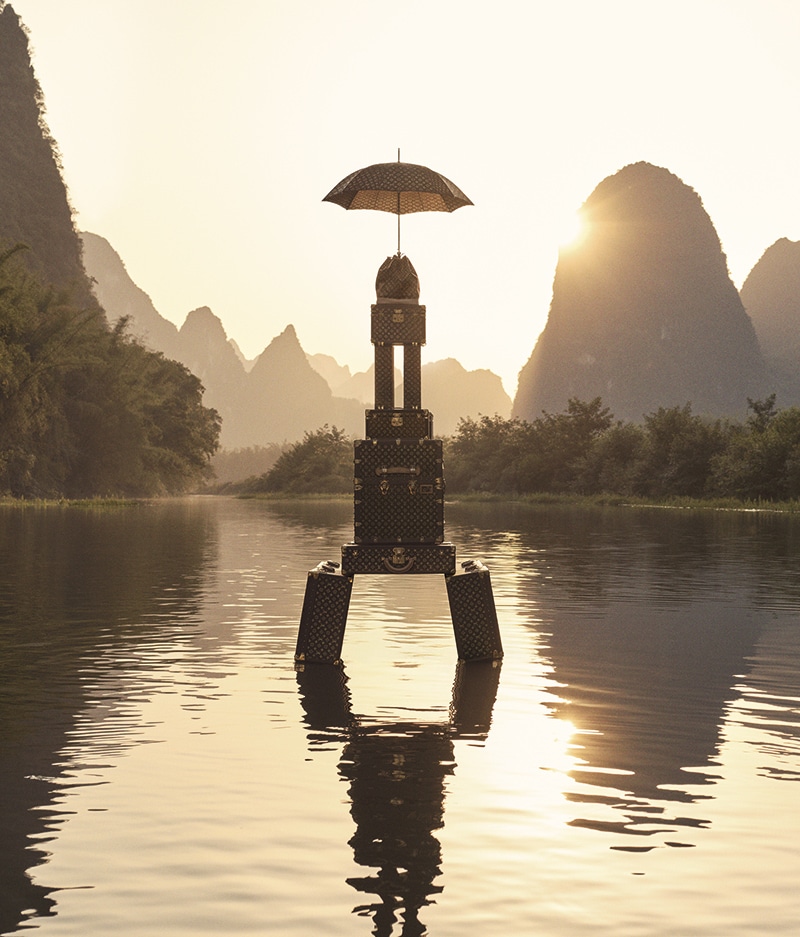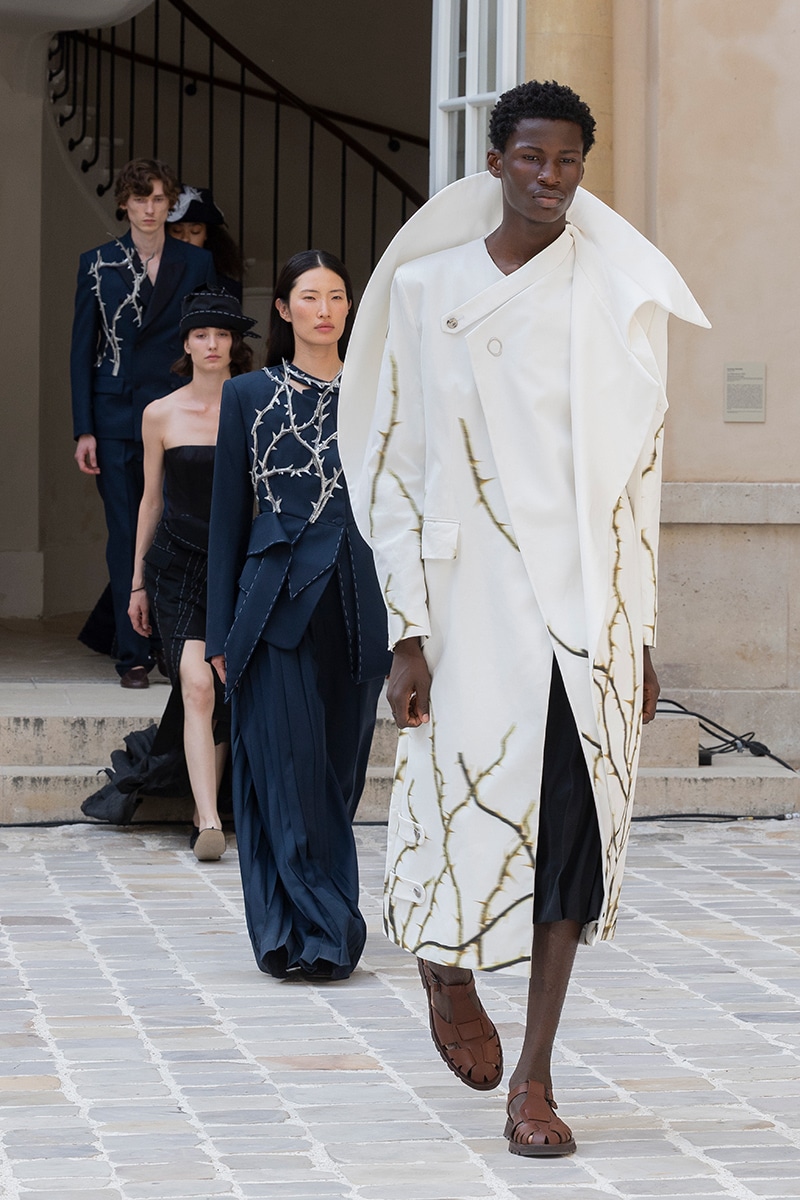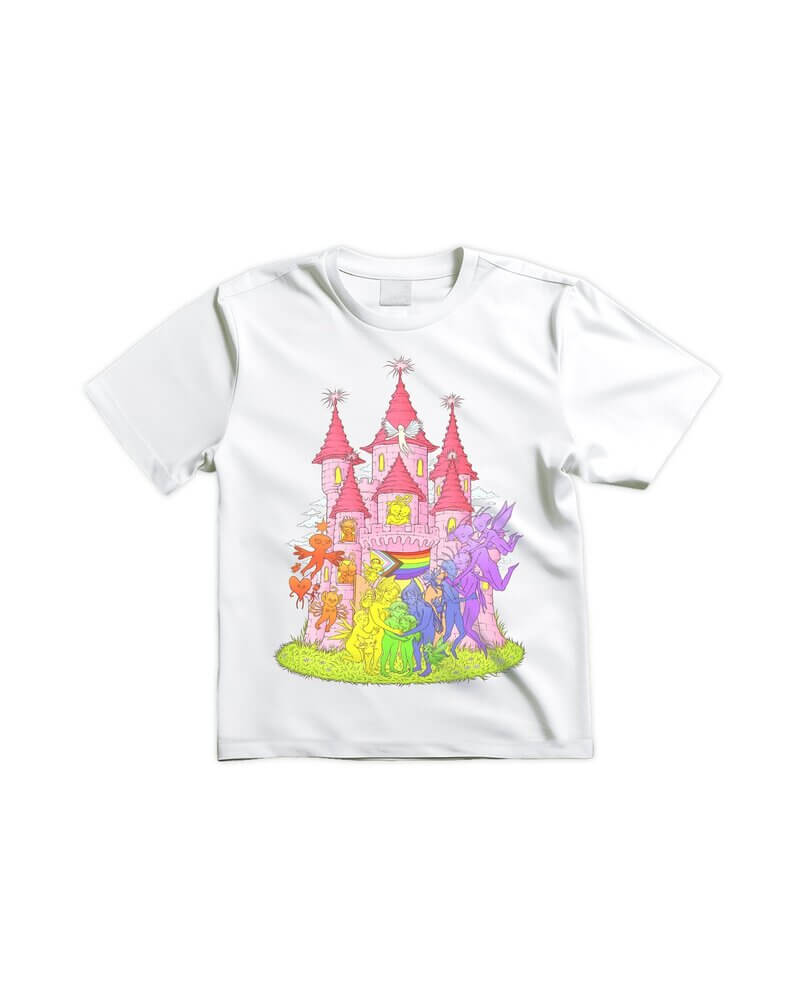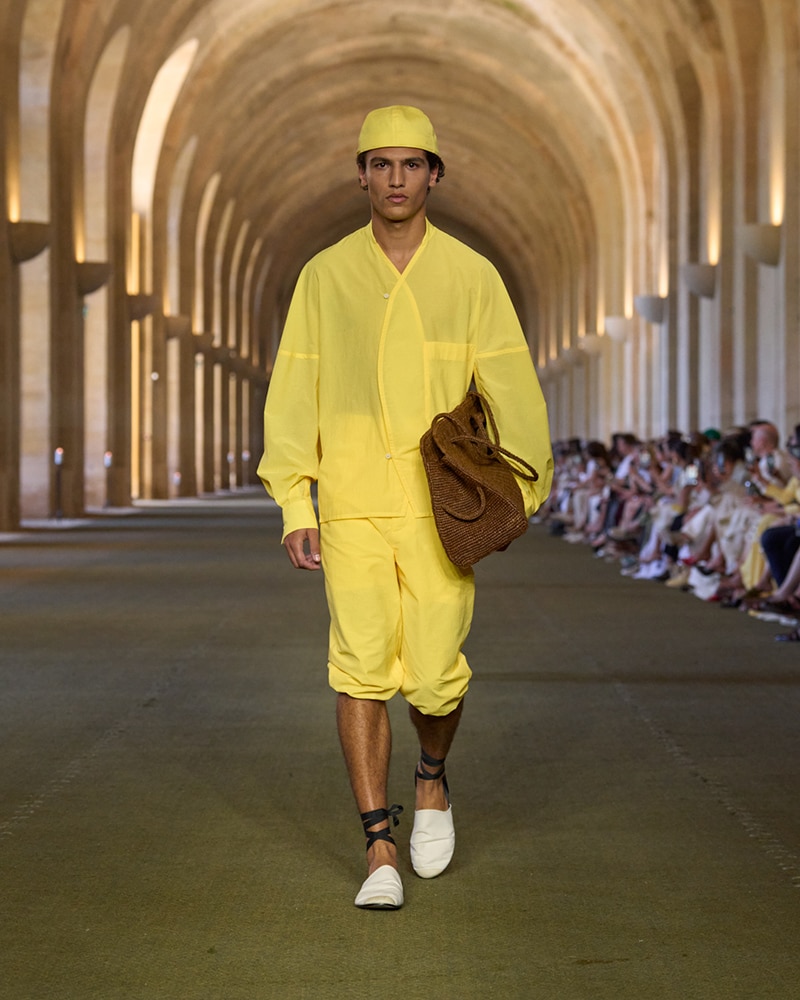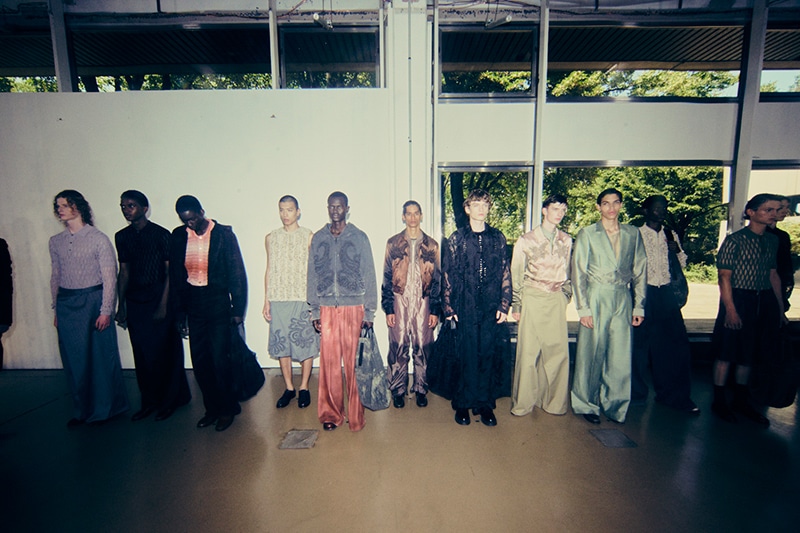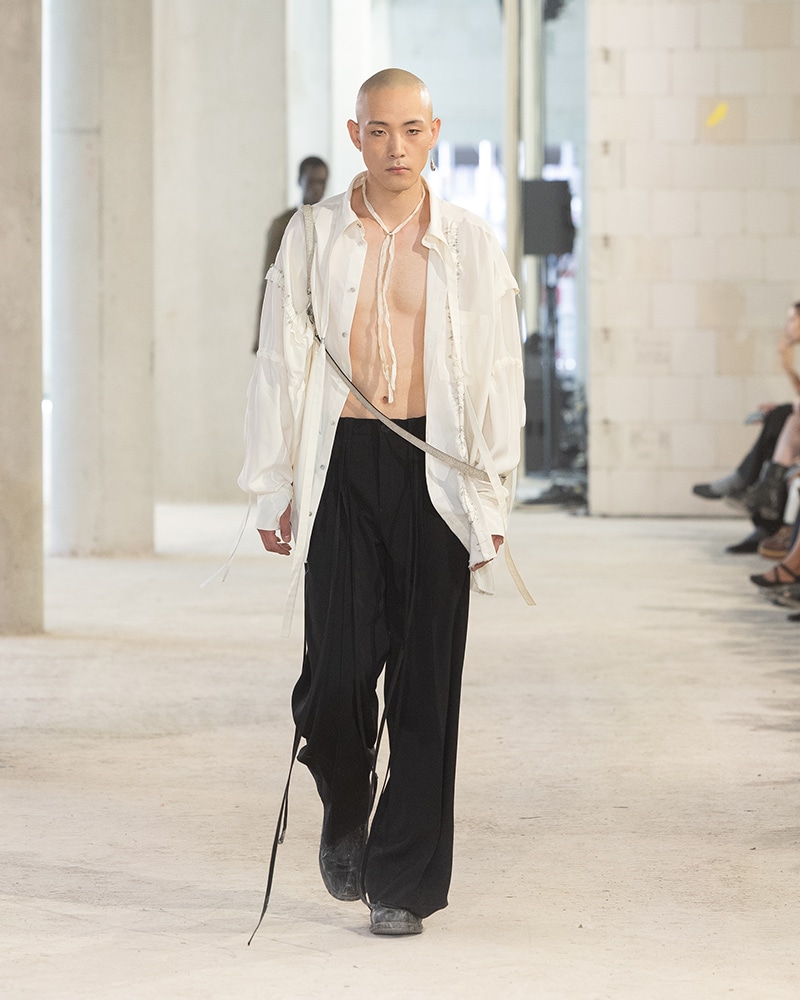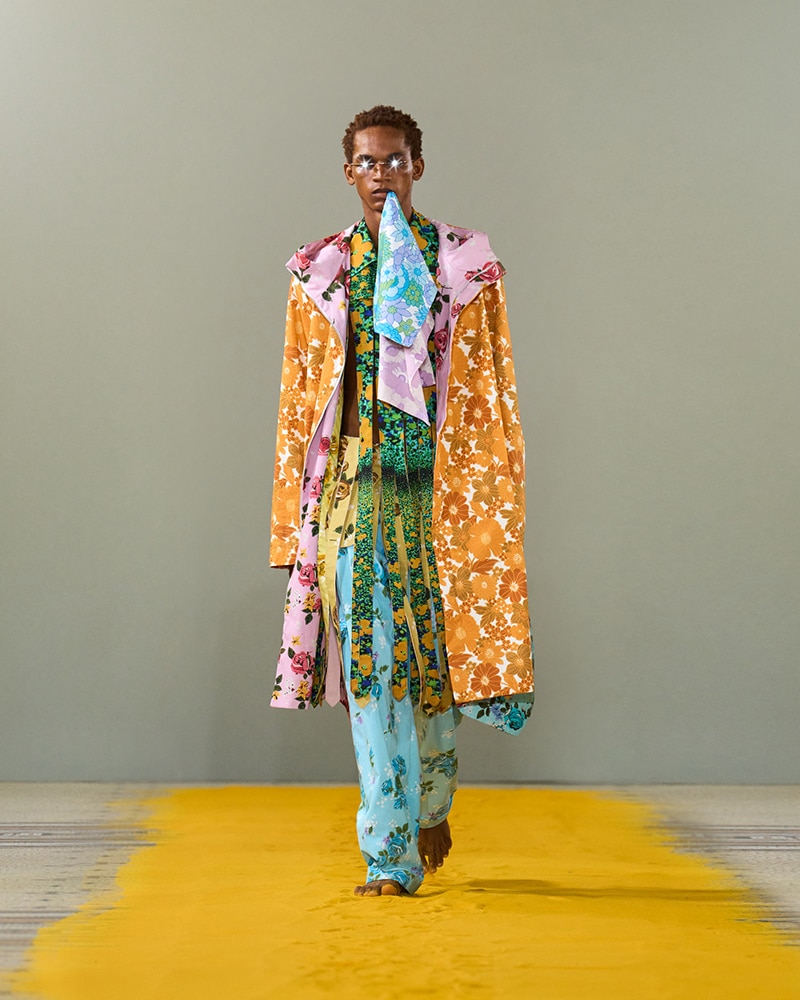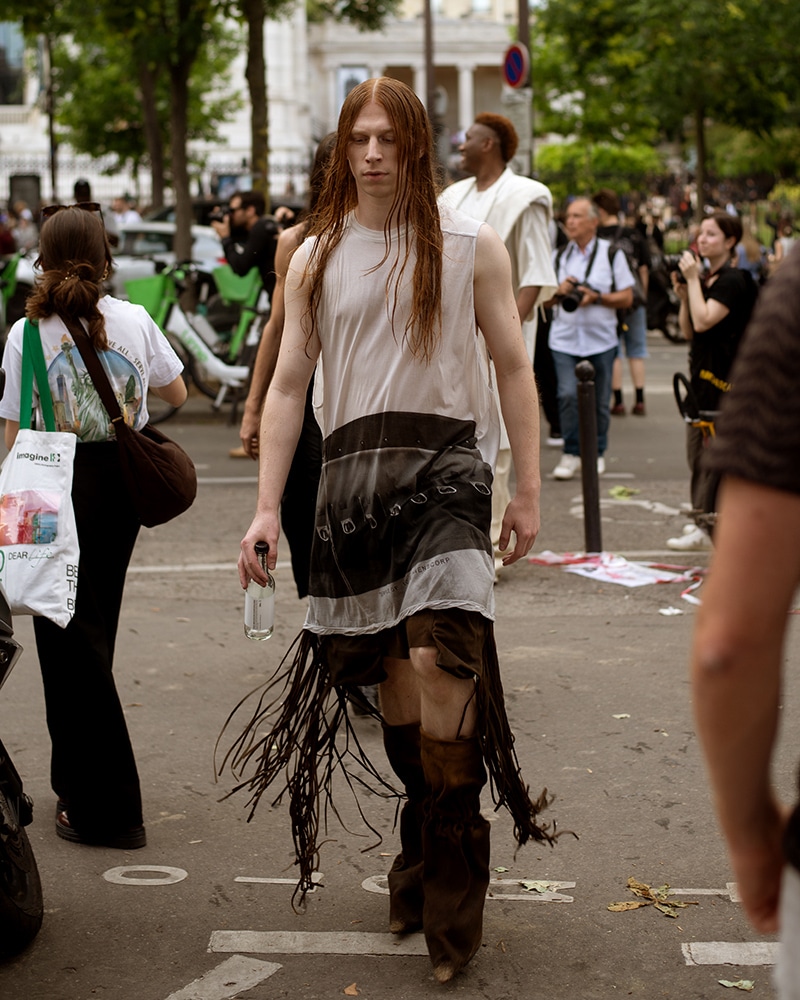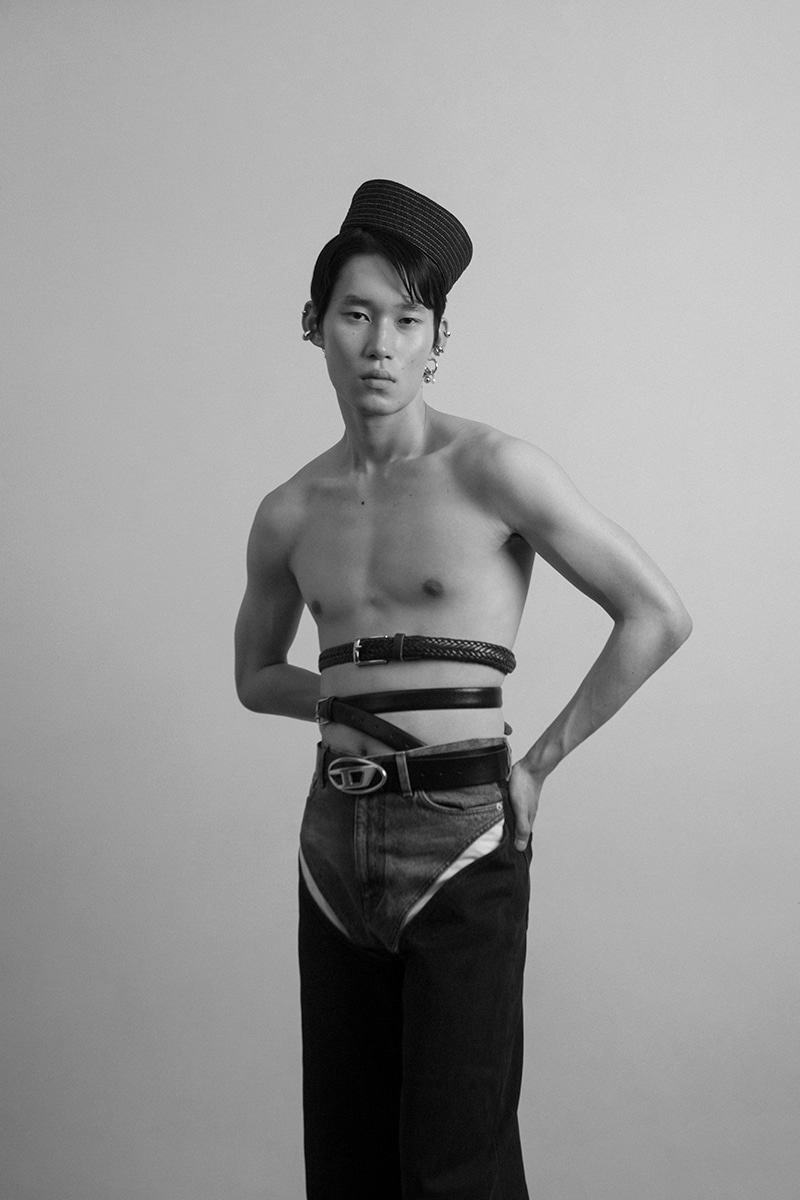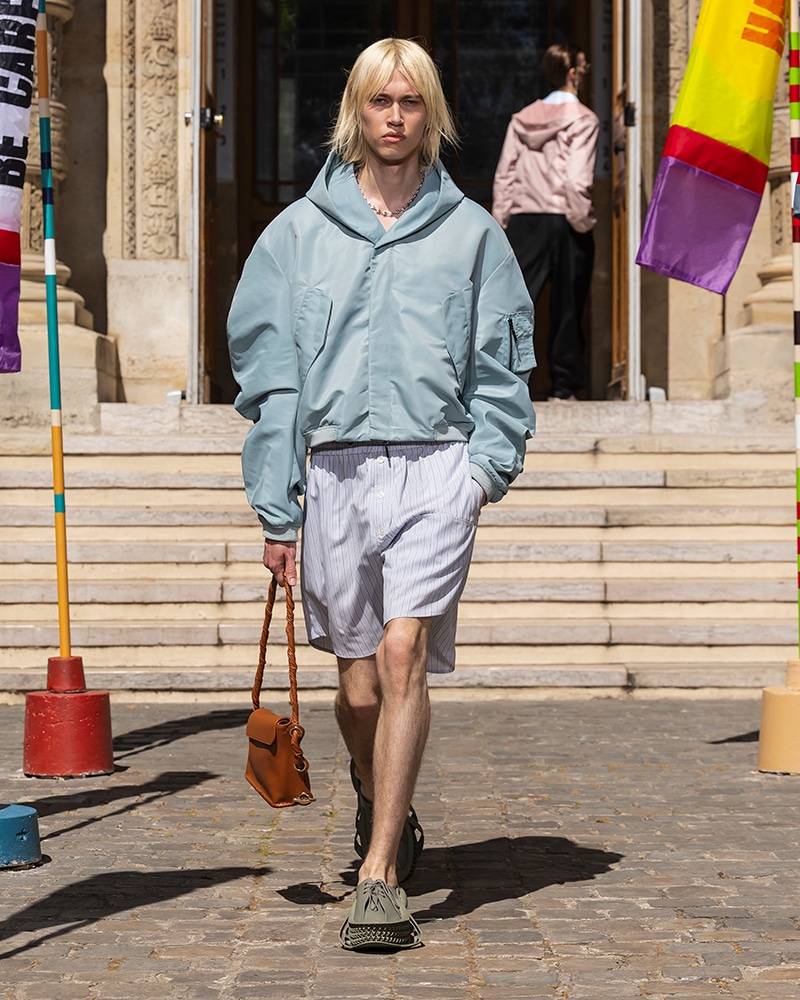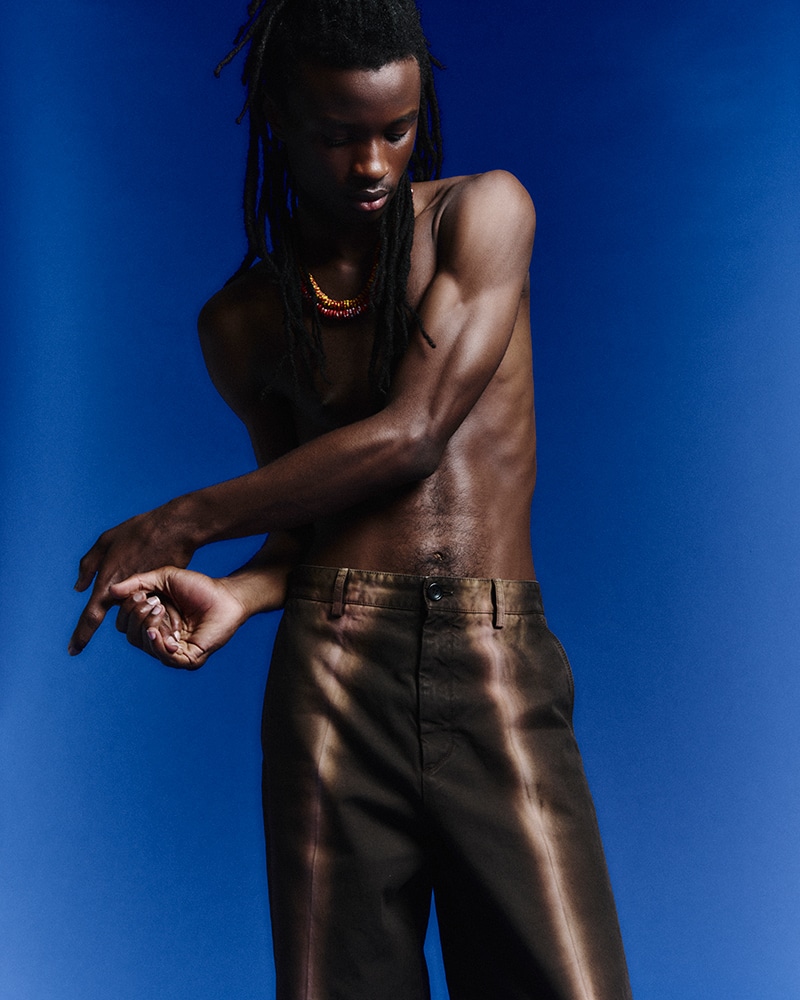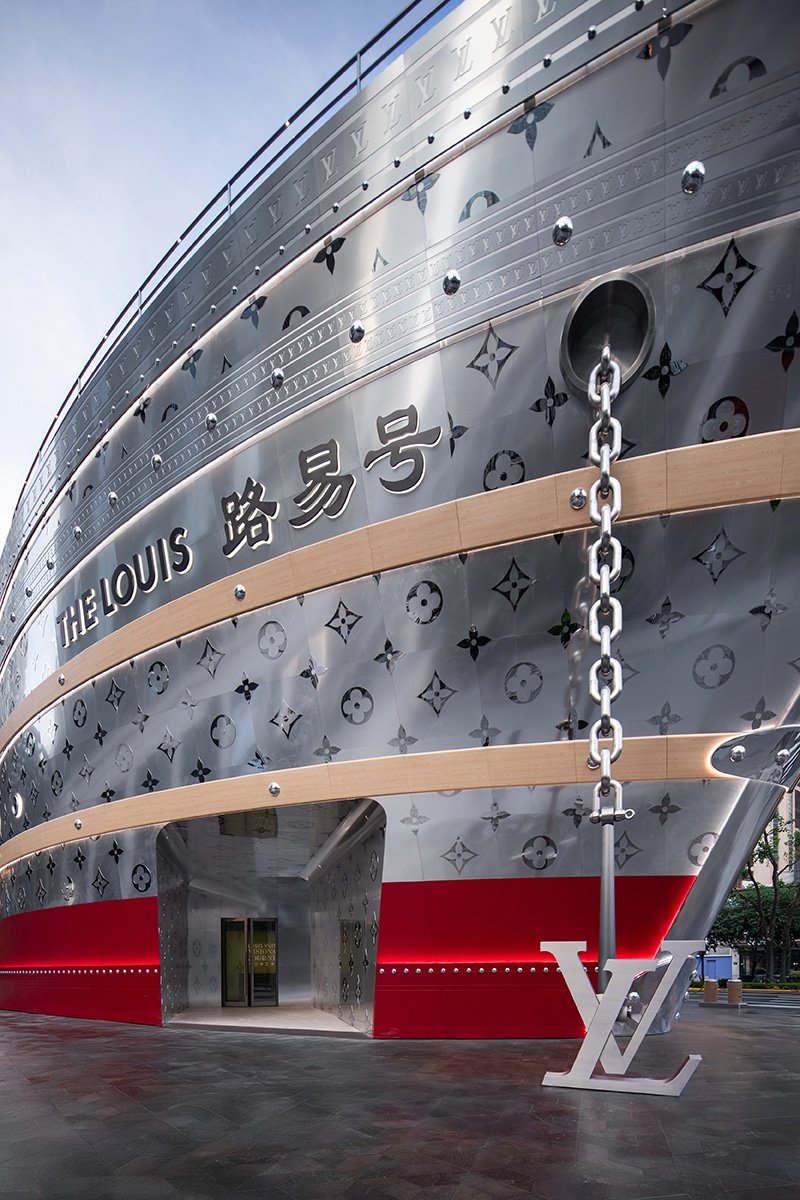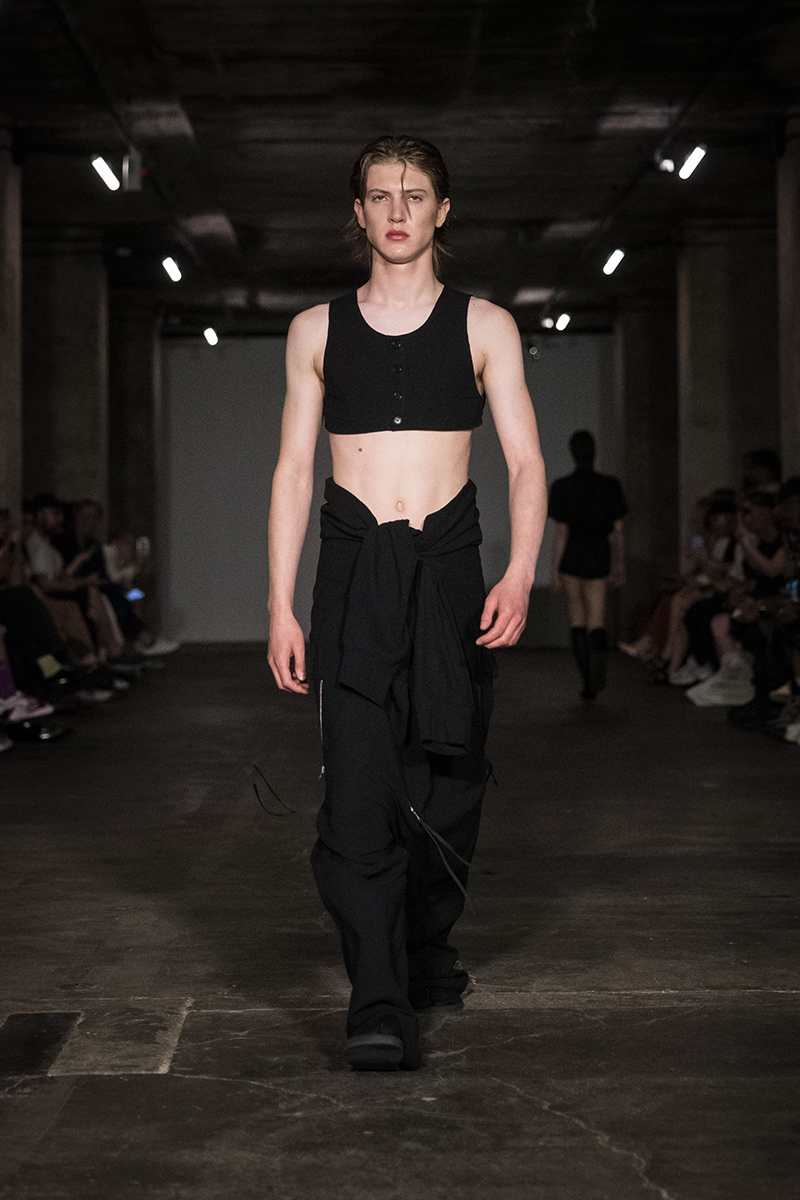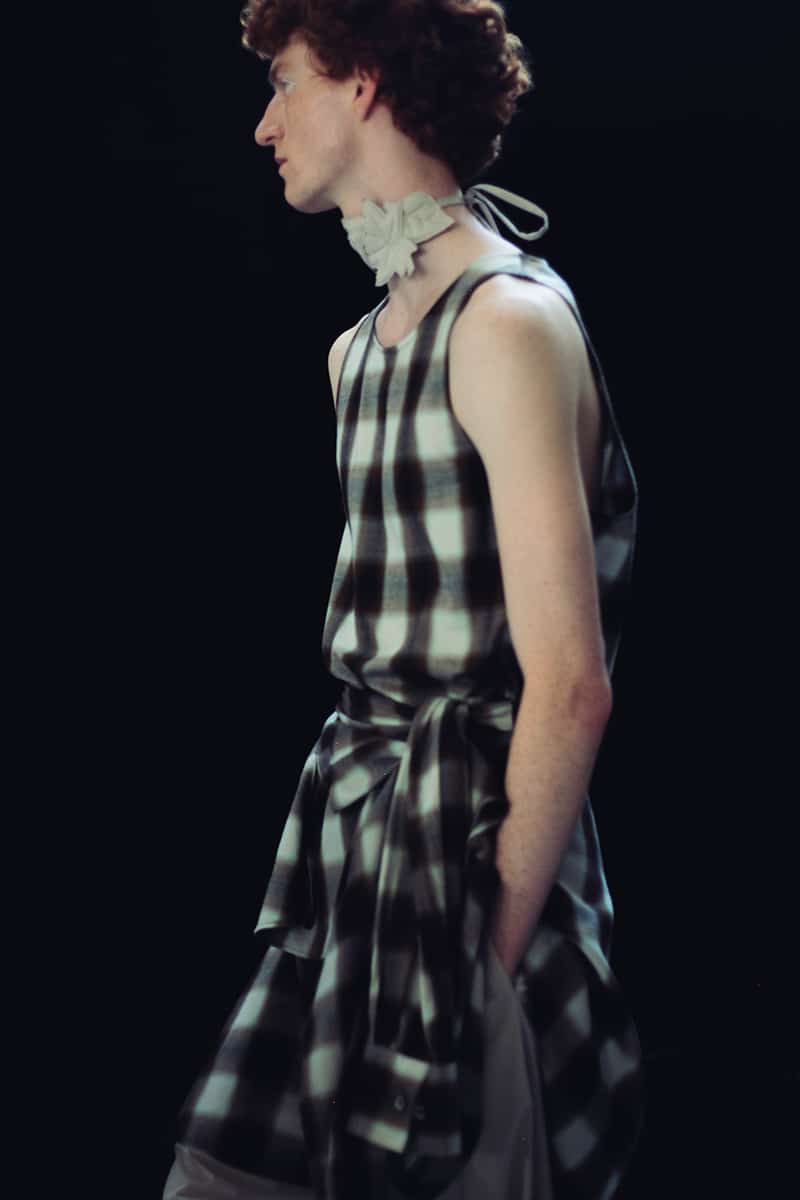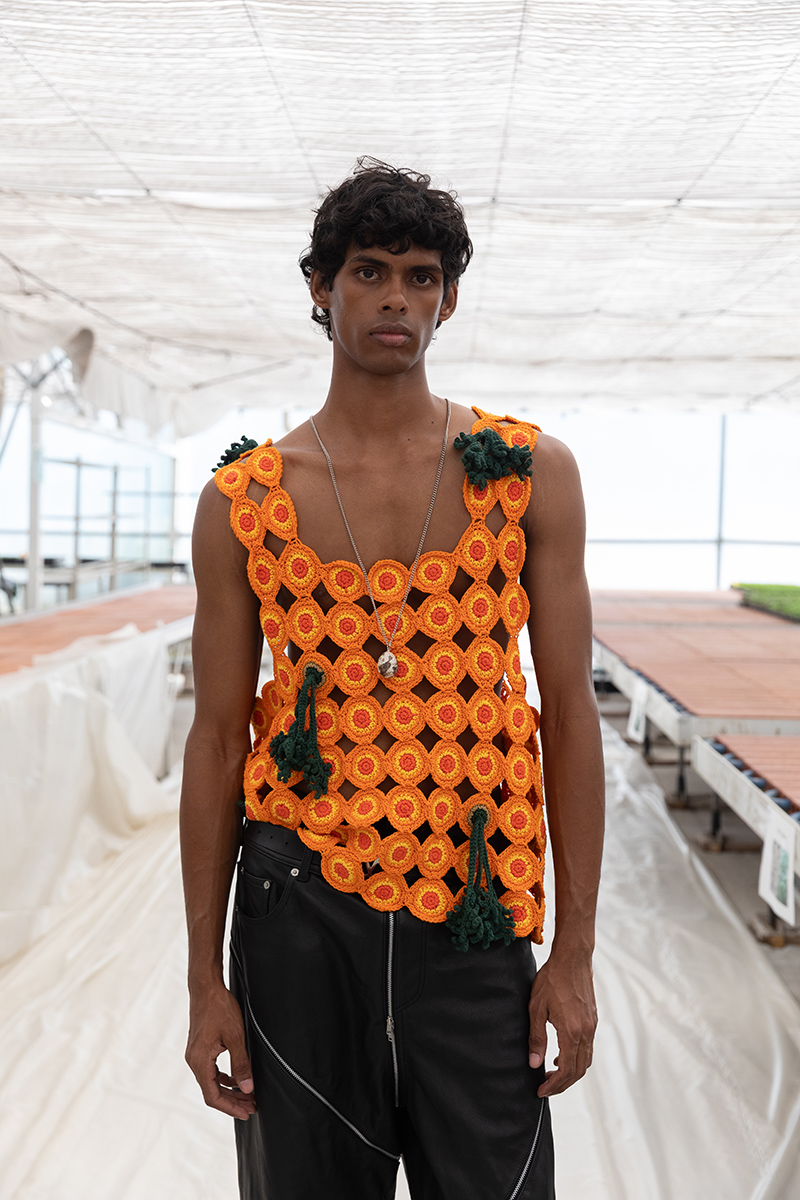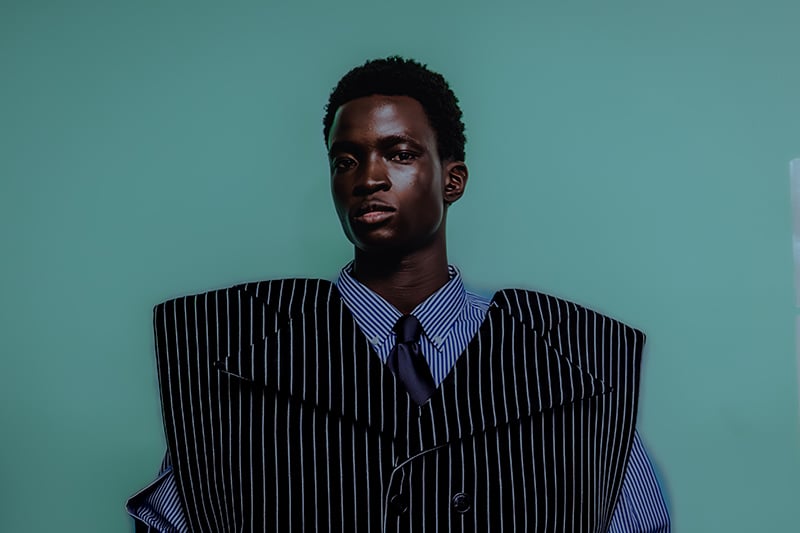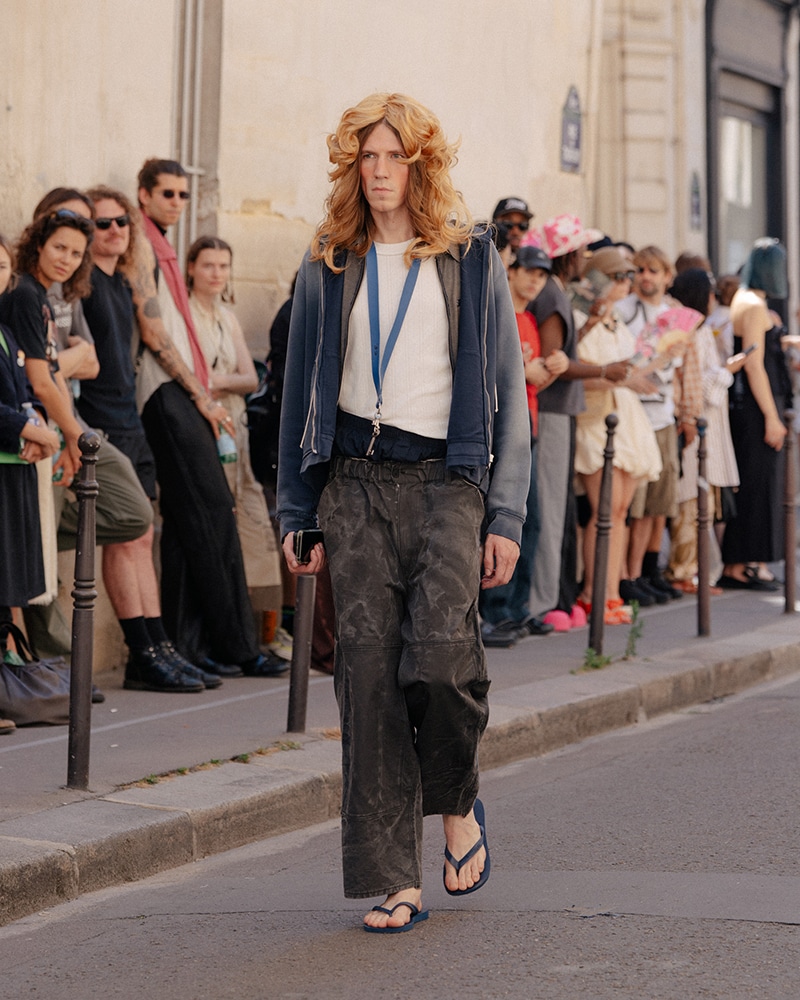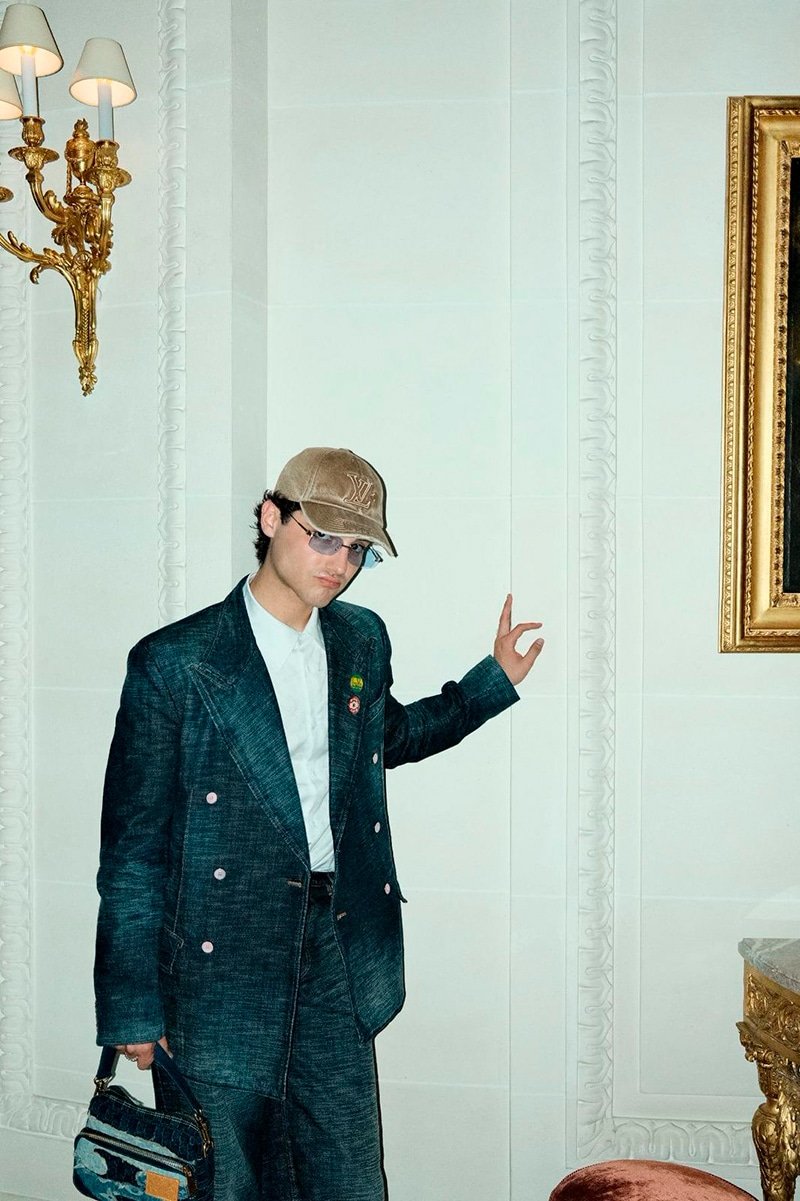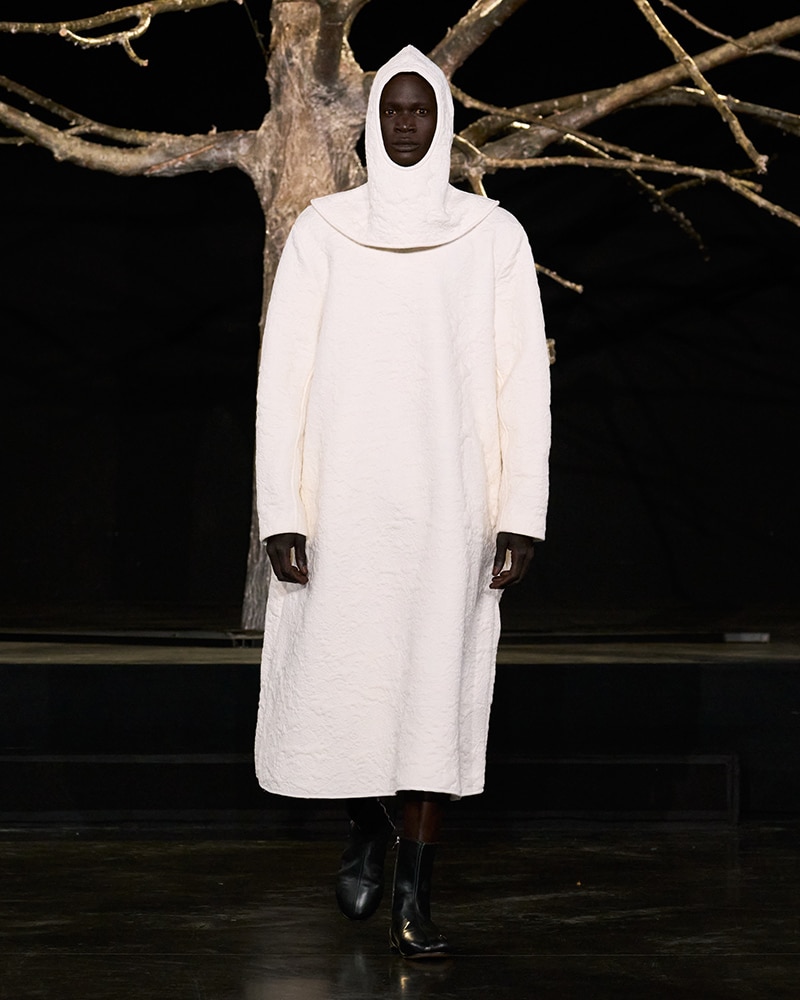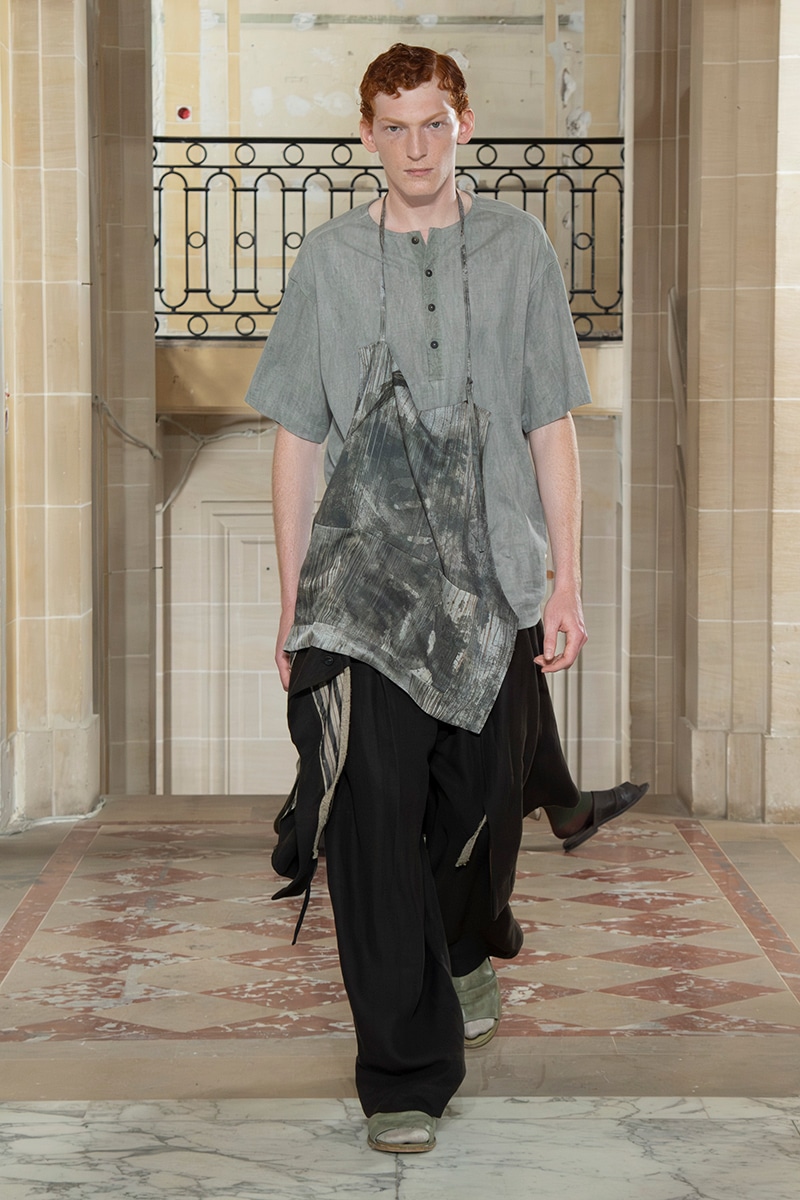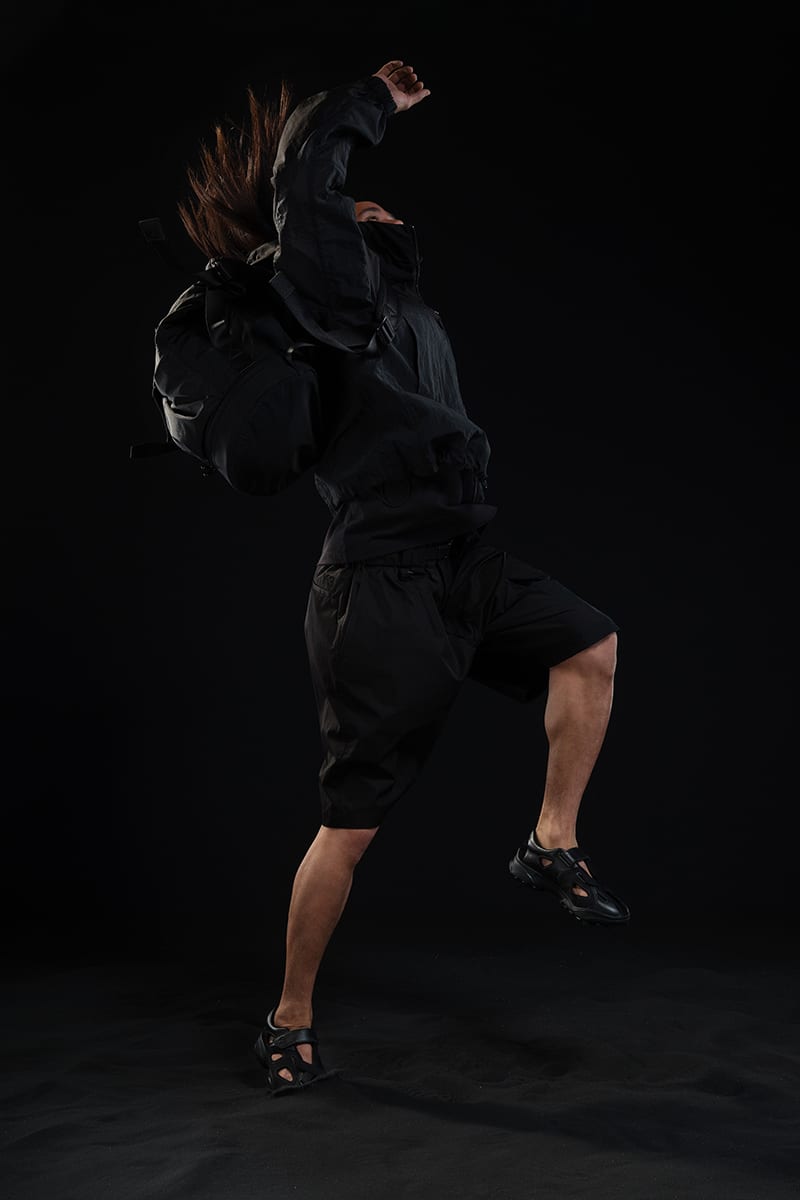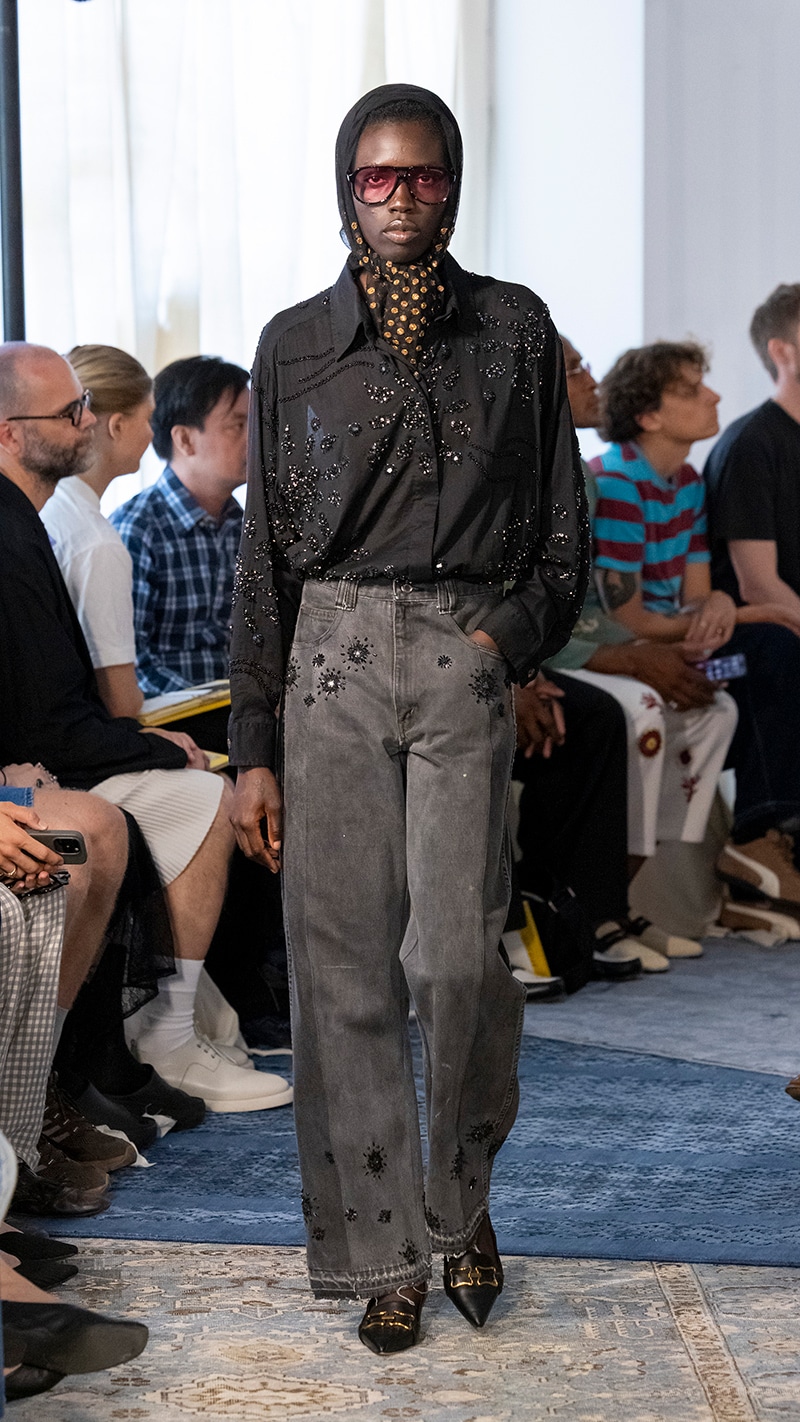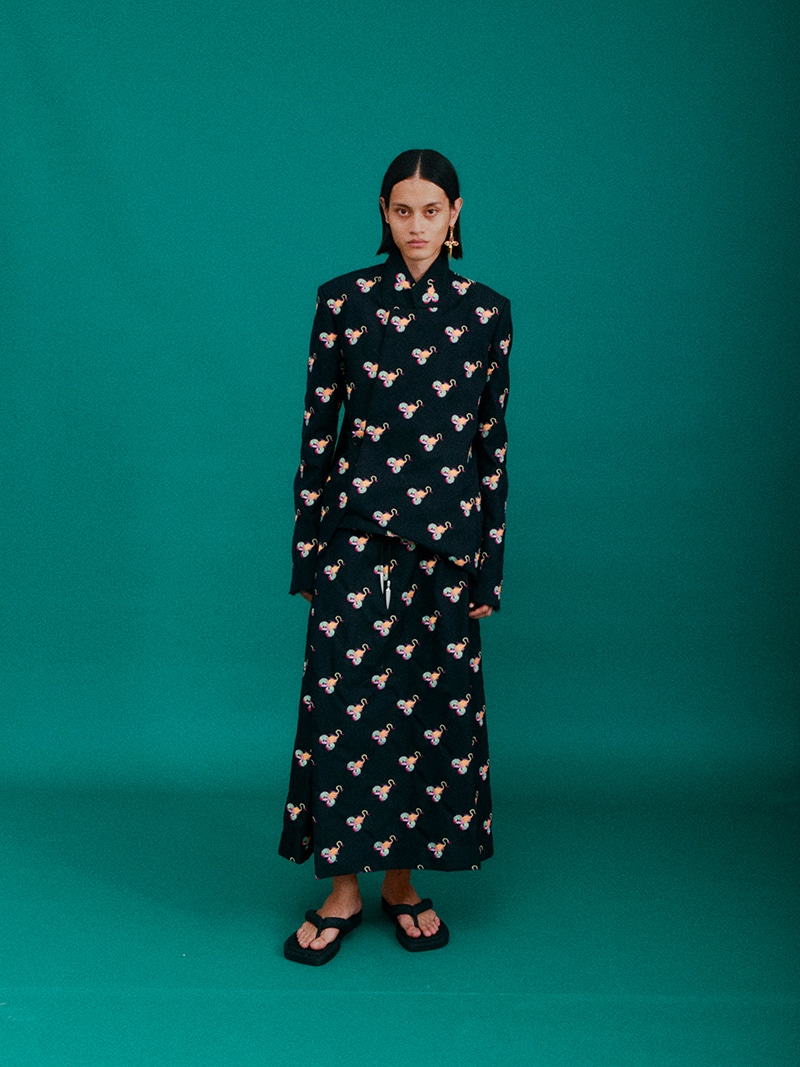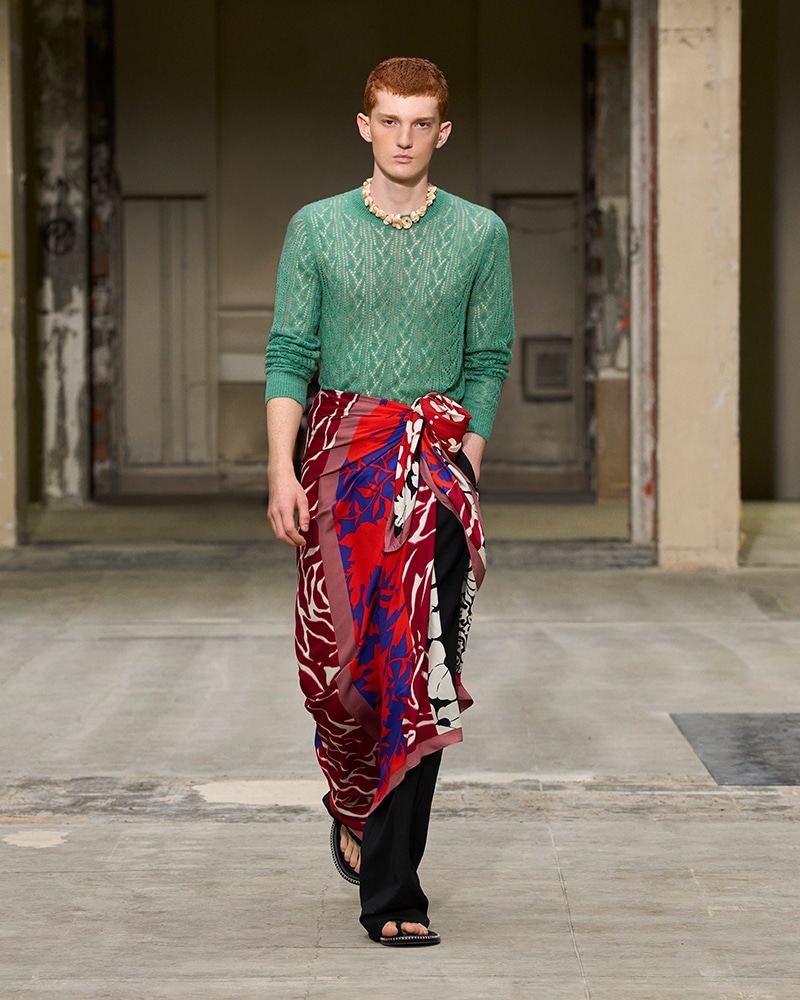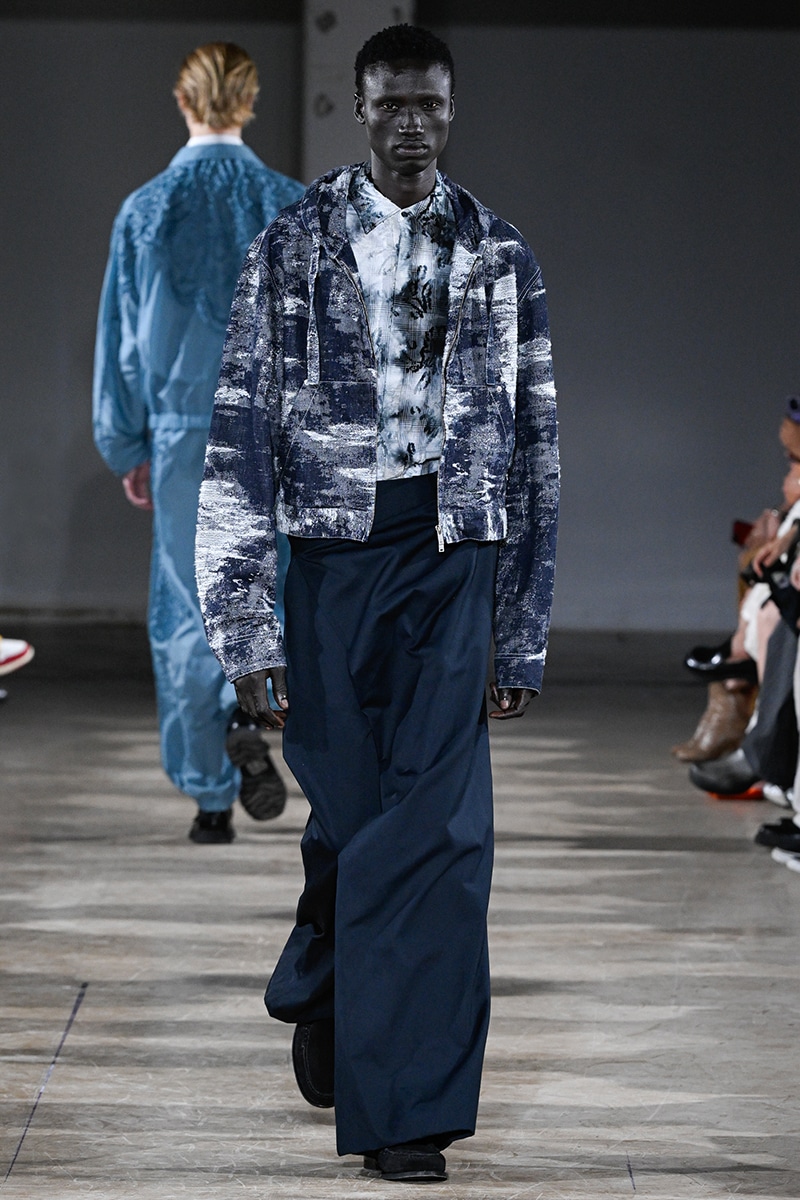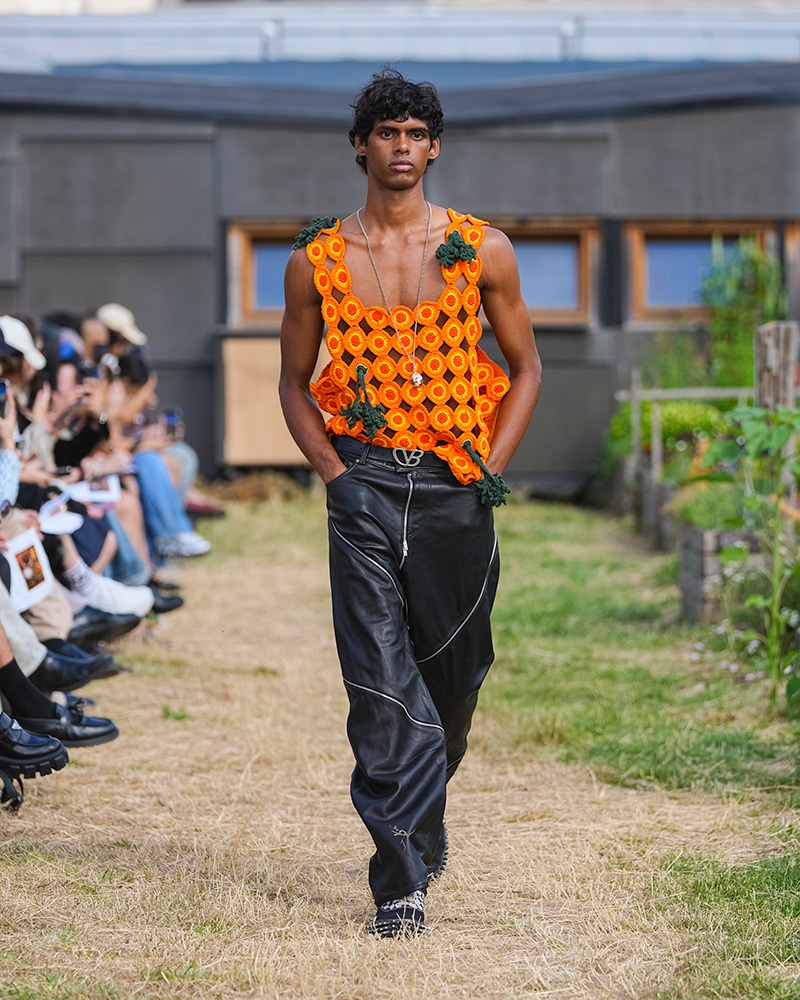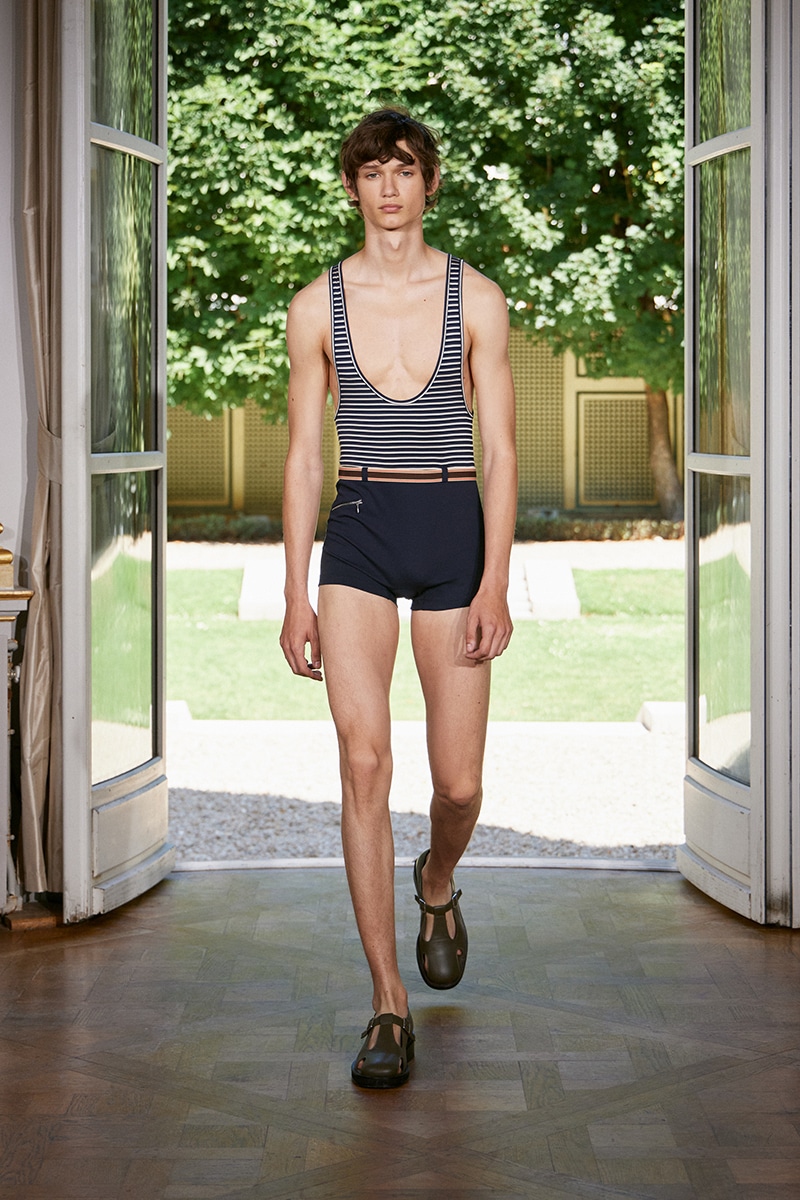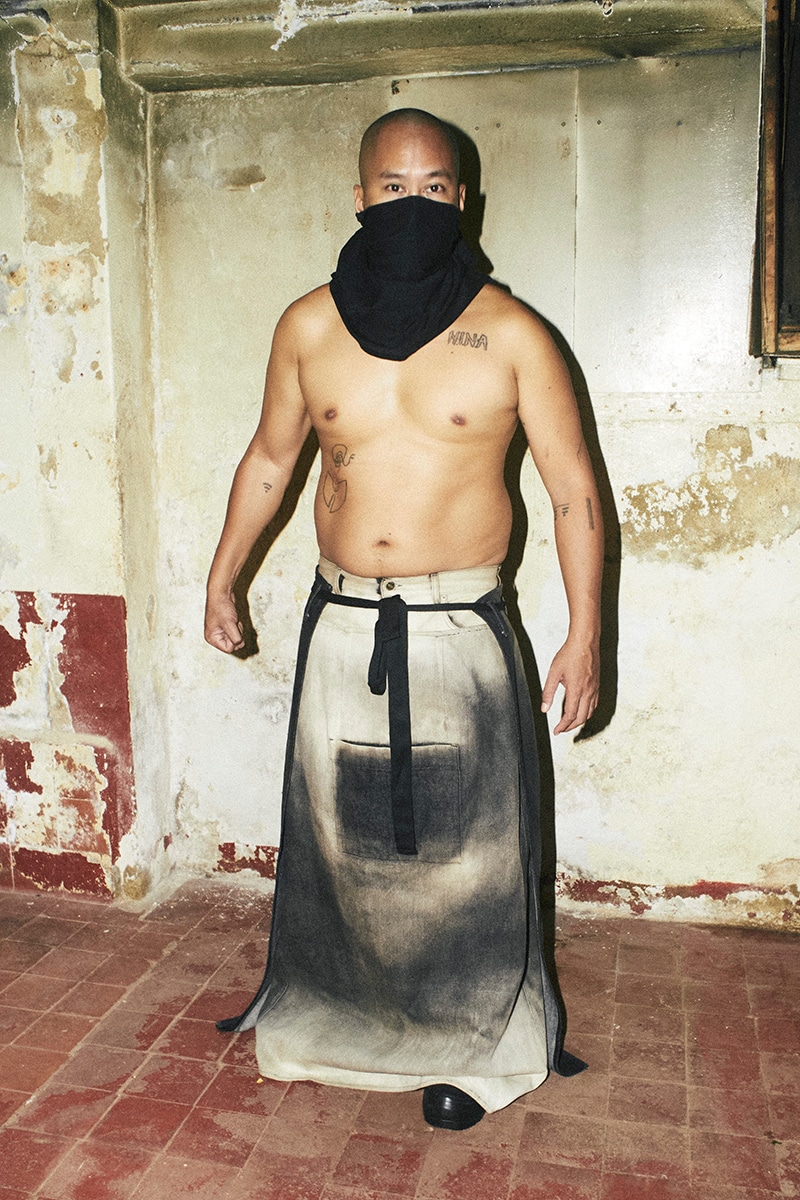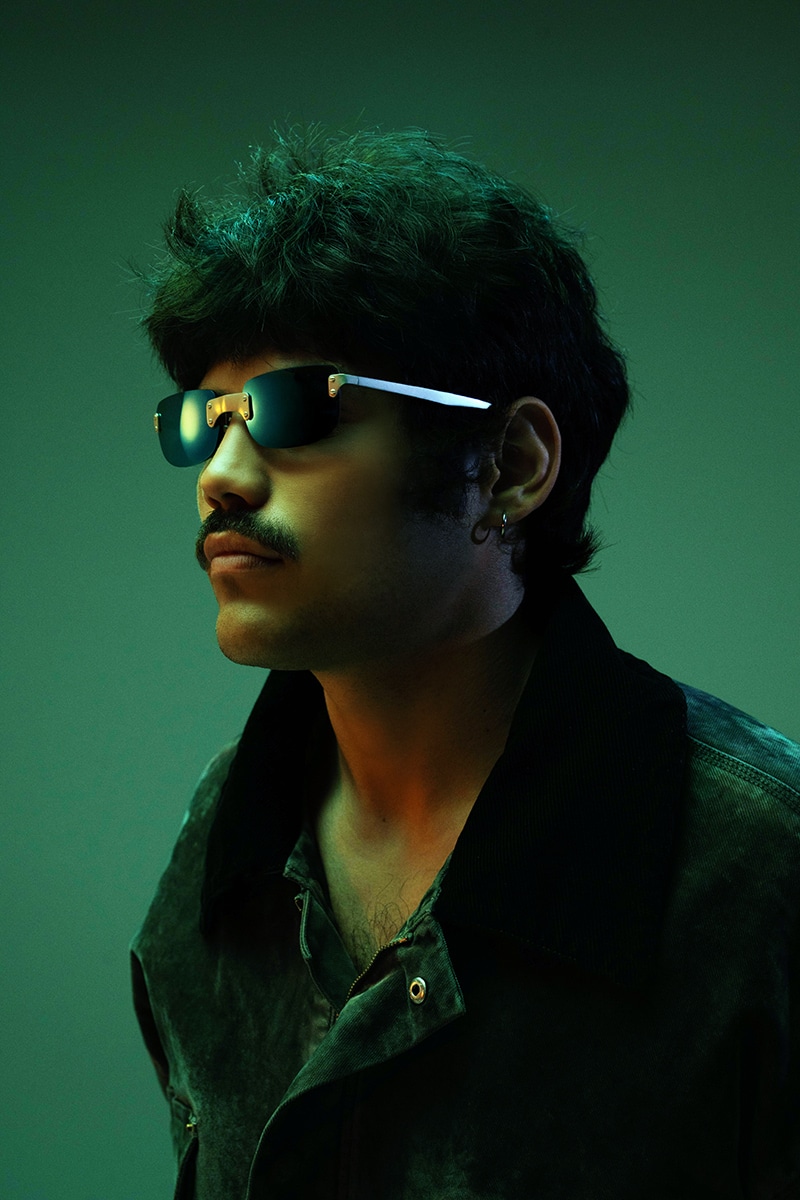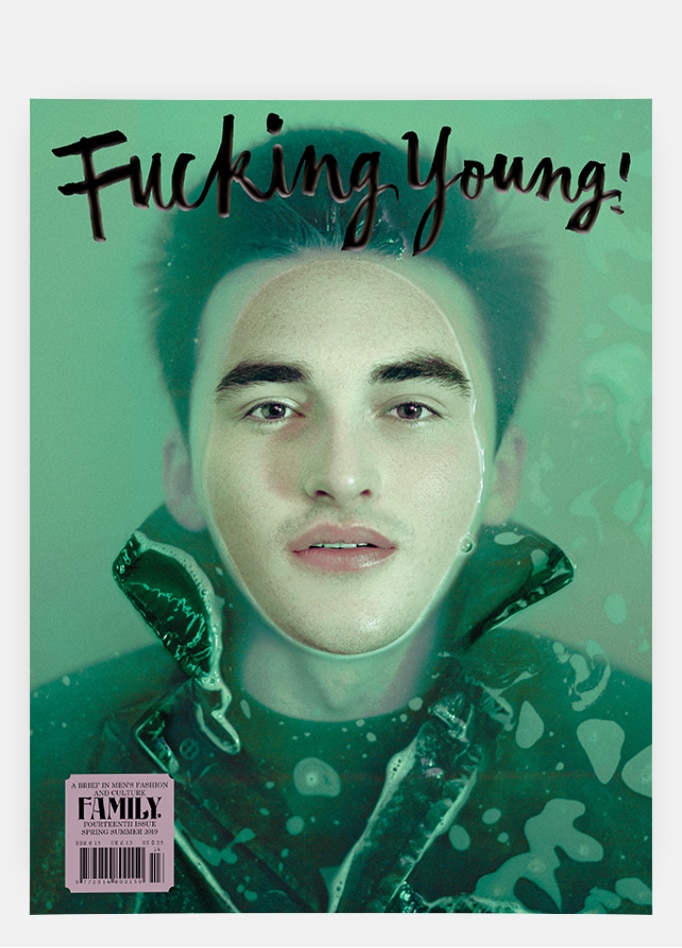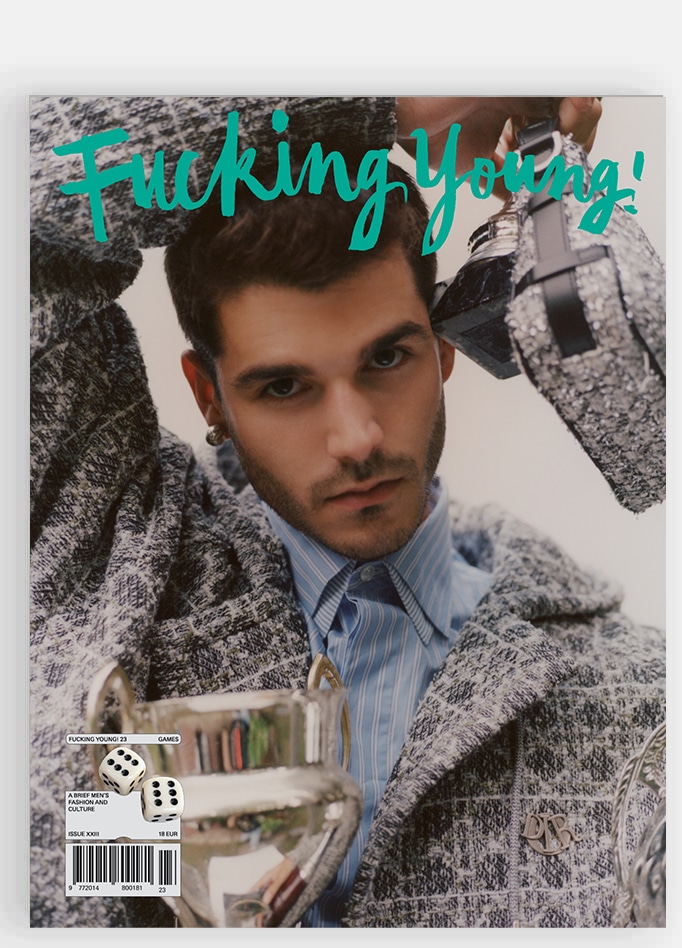The singer talks about his first and very personal E.P. “Lo que pueda pasar” a kaleidoscope of rage and impusiveness.

I’ve been listening to Macías’ music since the beginning and if there is one thing that is clear, track after track, it’s his absolute waste of character and personality. This singer from Extremadura gives off powerful, imposing vibes. His hazel eyes, his tattoos and his urban style make his presence in the industry unmissable. Macías is provocative, sexy and thuggish, but without pretending to be. He just does what he feels like doing, without thinking about what others think. His first E.P. “Lo que pueda pasar” is a letter of introduction where Macías shows himself as a complex young man, with concerns and dreams, demonstrating that being carefree is not at odds with the attention and care that the singer dedicates to his melodies and lyrics. Macías’ journey has only just begun and he walks with a firm step, without being influenced and maintaining his pure essence. The future is unknown, but Macias’ future looks unravelled and fun.
Macías, it’s good to be able to interview you at last! It’s about time! I’m very happy to be able to do it when you release your first solo E.P. How did you feel after releasing it?
Liberated and happy, it’s the first time in years that I’ve been able to focus on a project and to be able to express everything I wanted and to sound as I had in my head has also been very nice for me.
Your E.P. is titled “Lo que pueda pasar” a title that has caught my attention. Could you explain me a little bit more what is behind this title?
What it means to me is that really everything could happen in a negative sense, at the beginning I had another idea in mind much more macabre and pissed off but I decided to keep that, because it was simpler and I felt it fit better with all the emotionality that the songs gave off.
Listening to this great work I have felt that maybe there is a certain anger hidden in it, a certain desire to kick the world’s ass. At what moment in your life did you conceive “Lo que pueda pasar”?
It was written in a moment of anger, disappointment, pain, it was like everything around me was evoking sad feelings or emotions and I had a plug inside that I could only release with music.
In the E.P. you define your interior as a battlefield where peace is a utopia, why that feeling of hopelessness?
It’s all linked to growing up at the time when I started to understand how the world worked and how my life would progress towards being an adult and never again a child. And in general also seeing what the world is becoming, what life is like here in Madrid, I think it’s difficult to have a positive view of what it’s all like.

Now that you have unburdened yourself with these six songs, how has composing this first EP changed you?
Now that a few months have passed, I see that making the EP has been a way of maturing in order to develop my sound, my aesthetic, my identity. I feel completely sure about the steps I’m going to take from now on.
What feelings are you looking to awaken with “Lo que pueda pasar”?
I’m looking to connect with people, regardless of age, I feel everything as very banal and empty, and that generates in me a need to want to make people feel things, from nostalgia for past moments, to sadness at having made mistakes or anger at who the world around us is turning us into.

If “Lo que pueda pasar” is a path, where is it heading?
I want to improve and learn a lot and I think that my next work will show where we come from and where we are going.
I’d like to talk a bit about your beginnings. You grew up in a small town in Badajoz called Barcarrota, with just over three thousand inhabitants. Tell me about your childhood, what were you like as a child?
Well, luckily I think I still have that essence that characterised me as a child, the illusion, the energy, the imagination, the sensitivity. For me it was perfect, and one of the things I am most happy about in my life is having grown up in my village and feeling that there is a place for me there.
Now you live in Madrid, how did you experience those first years in the Spanish capital?
They were quite nice and crazy, after all, all my life in a village far from any stimulus and a bit isolated from everything, well, of course you come to Madrid and it’s a 360º change. Although it’s not the place where I want to live, I know that everything I do is because I came to live in Madrid.

You have worked as a model, what has your experience in the fashion world been like? You have also participated as an actor in ÉLITE and Cardo, would you like to continue exploring that facet?
They are good and I like to develop myself in other fields that are not music, but they are things that I don’t pay much attention to right now, I don’t want people to confuse that I do everything, I like people to know that my thing is music and that fashion and cinema are parallel things that I do for fun.
Your visual aesthetic is very marked, are you interested in cinema? Who are your references?
I love cinema, I don’t think it inspires me as such, at least in terms of sensations, but visually it awakens many things in me. I really like Yorgos Lánthimos, Lars Von Trier, Ghibli Studios. I’ll tell you that I’m more into individual films than directors.

What do you expect from life after giving the public “Whatever May Happen”?
Well, I would like my music to reach as many people as possible and to be able to dedicate myself fully to music, but as long as people listen to it and show it to people who might like it, I’m more than satisfied.
Where do you see yourself in ten years?
Well, I see myself studying and learning everything I can about production and music, I’m more excited to imagine myself becoming a professional than saying that I see myself living from my music or with x position in the scene.

Do you pay attention to your own aesthetics? How would you define the image you capture in “Lo que pueda pasar”?
Of course I pay attention to it, I think aesthetics is essential, in the end it will be one of the things that will define you as an artist and what people will recognise you by. The aesthetics of this EP oscillates between the macabre for the actions or the roll and the innocent for the fact of photographing children.
We’ve been following each other on Instagram for a while now and I love your vibes. Do you pay attention to social media?
Well, the truth is that I hate social networks, I feel less and less identified with what they represent or how they are used, but in the end you have to be part of the gear and try to manage them in the best possible way.

For more @_macias_______
Credits:
Interview by Juan Marti @sswango
Photography and style by @madkidmontes
Photography assistant: @no.jorges
Make-up: @andreaegidomuah
